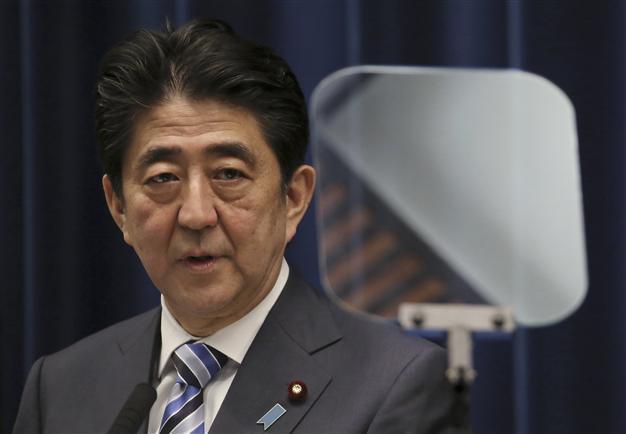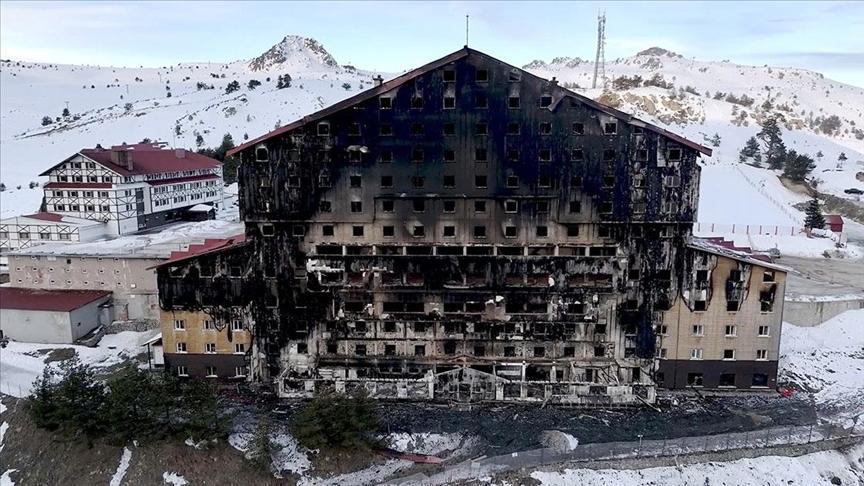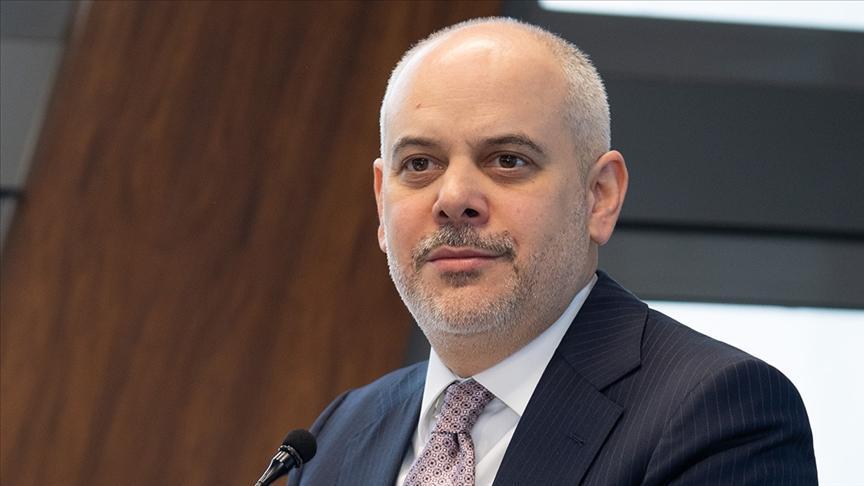Japan PM says may drop direct apology in WWII statement
TOKYO - Agence France-Presse

AP Photo
Japan's leader Shinzo Abe risked Chinese and Korean ire April 21 by sending an offering to a controversial war shrine, and saying he may not repeat a formal apology for the country's World War II rampage.Abe, an unabashed nationalist, made a symbolic donation to Yasukuni Shrine, the supposed repository of the country's war dead, including 14 of the most infamous war criminals.
The gifting of a sakaki tree -- sacred in native Shintoism -- appeared to indicate that Abe would not visit Yasukuni during the three-day Spring festival, which begins April 21.
Nevertheless, Beijing and Seoul, which view the shrine as a symbol of Japan's unrepentance over wartime wrongs, are likely to be angered by the offering at a time focus is increasingly on a statement Abe will make marking the 70th anniversary of the end of World War II.
Observers are watching whether he will make direct reference to his country's "colonial rule and aggression" and express "remorse" and "apology", as previous premiers did on the 50th and 60th anniversaries.
For China and South Korea, which suffered under the yoke of Japan's imperial ambition -- the terms are a crucial marker of Tokyo's acceptance of guilt for its march across Asia in the 1930s and 1940s, which left millions dead.
Abe suggested in a TV interview broadcast late April 20, that provided he says he agrees with previous statements: "I don't think I need to write it again".
Beijing and Seoul vociferously argue that Tokyo has not properly atoned for its warring and insist that a landmark 1995 statement expressing deep remorse must stand.
But Abe wants Japan to have what he says is a less masochistic view of its history, and has caused waves by quibbling over the definition of "invade" and provoked anger by downplaying Tokyo's formalised wartime system of sex slavery.
While many of its former foes have moved past the enmity of last century, Japan is regularly lambasted by Beijing and Seoul for a perceived failure to atone for the past, and for being unwilling to "face history squarely".
Last week, Japanese novelist Haruki Murakami said Japan must continue saying sorry for its aggression until its former victims say "enough".
Omitting a direct apology in the summer statement would damage Japanese diplomacy, Tetsuro Kato, visiting professor at Tokyo's Waseda University, told AFP.
"Japan's relations with neighbouring countries could become worse," he said.
"Denying the history of aggression or simply not mentioning it would be a very strong message" of the wrong kind, he said.
Yasukuni shrine also received offerings from Health, Labour and Welfare Minister Yasuhisa Shiozaki as well as the chiefs of both chambers of parliament.
As well as honouring senior military and political figures convicted of prosecuting Japan's aggressive war, the shrine also houses a museum that paints Japan as a frustrated liberator of Asia and a victim of WWII.
Abe went to the shrine in December 2013, sparking fury in Asia and earning him a diplomatic slap on the wrist from the United States, which said it was "disappointed".
Scores of conservative lawmakers, possibly including cabinet ministers, are expected to go to the shrine to mark the spring festival on April 22.
Abe is due to leave Japan later April 21 for an Asia-Africa summit in Indonesia. He will visit the United States later this month. Both occasions are expected to provide clues on the content of his summer statement.
















